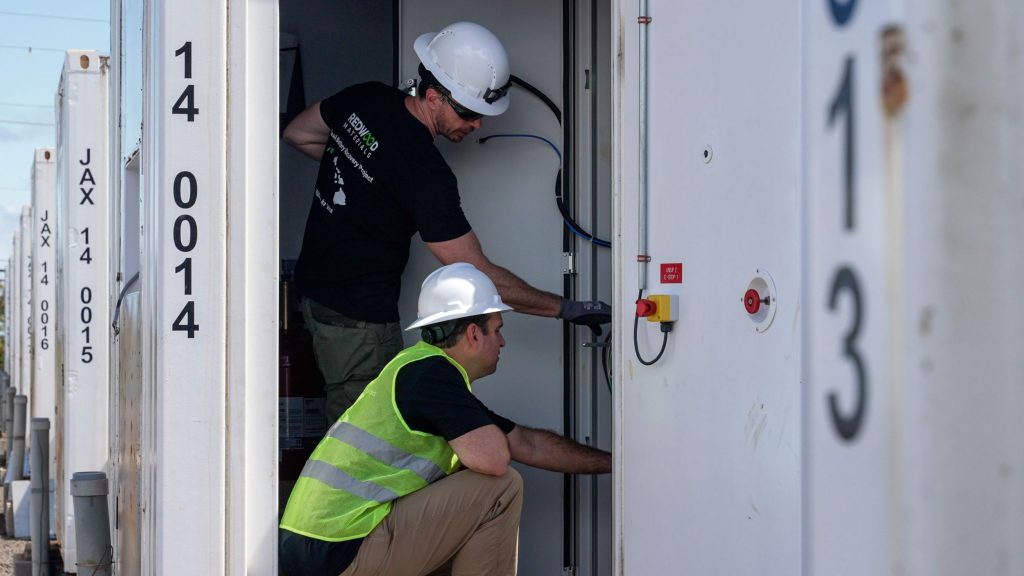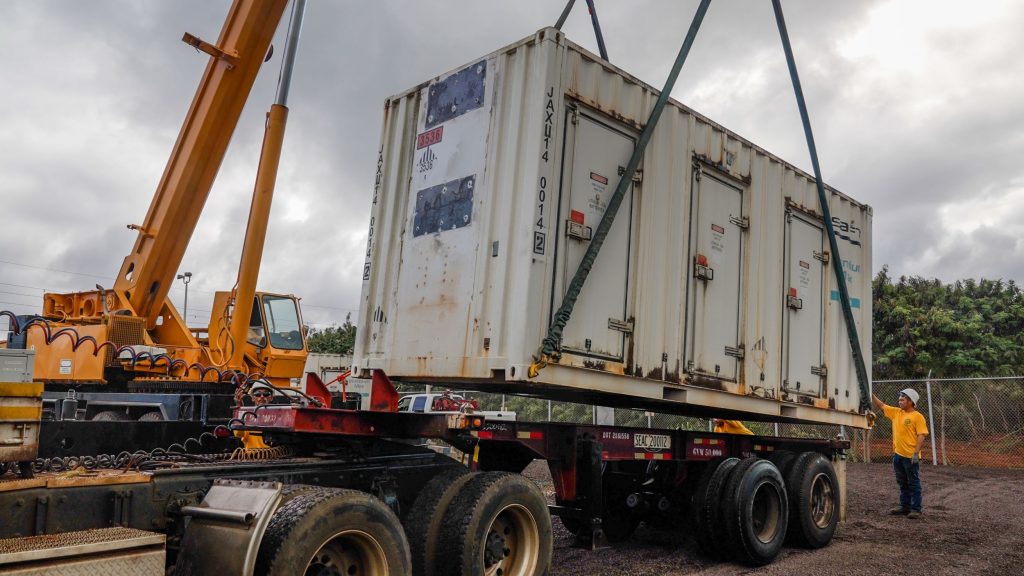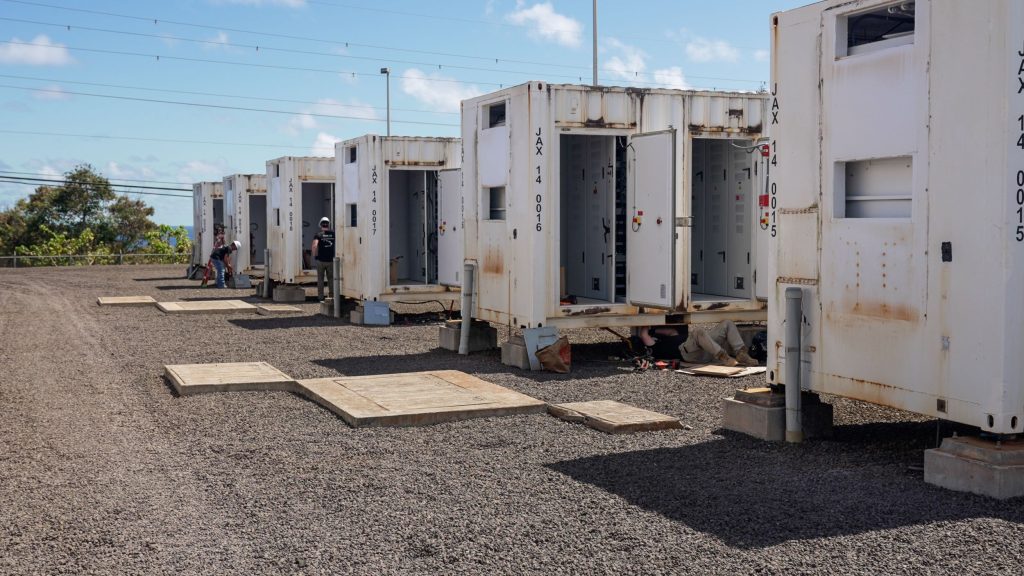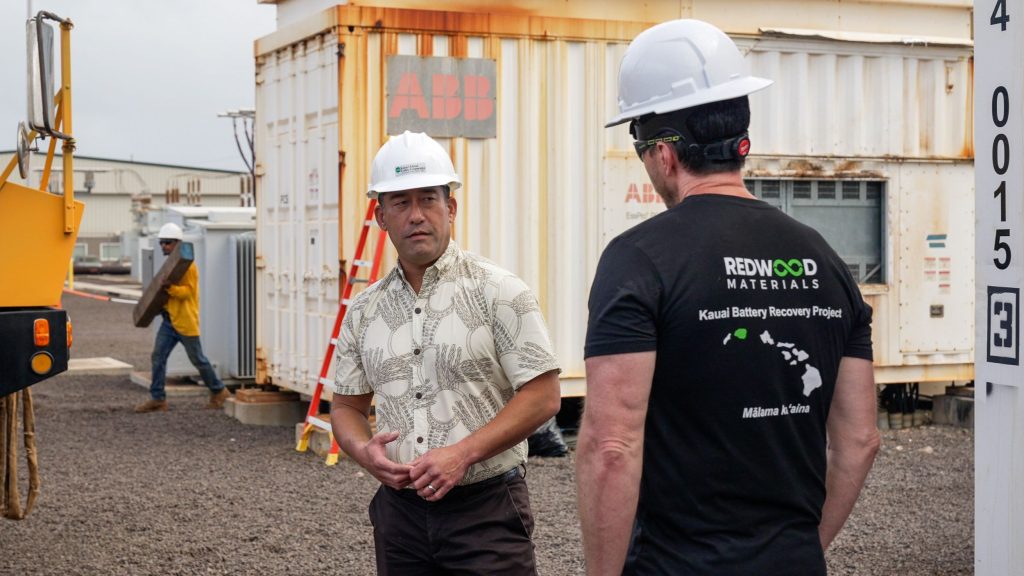KIUC, Redwood Materials partner to decommission, recycle Anahola substation battery storage system
Kauaʻi Island Utility Cooperative and Nevada-based Redwood Materials have partnered to decommission and recycle the 4-megawatt per hour battery energy storage system at the Anahola substation.

“To my knowledge this is the first utility-scale lithium-ion battery that’s being recycled in the state of Hawaiʻi,” said Kauaʻi Island Utility Co-op Chief of Operations Brad Rockwell. “Lithium-ion batteries are unique in that there’s a fair amount of materials that are worth going through the process of shipping them to a recycling facility to get the raw materials to be reused in new battery systems.”
The Anahola battery energy storage system was commissioned in 2015 as part of the cooperative’s Anahola solar project. That project was built on land leased from the Department of Hawaiian Home Lands in a partnership with the Anahola Hawaiian Homestead Association.
The project consisted of a 12-megawatt solar array, a new substation and the battery energy storage system. Following decommissioning of the storage system, the solar array and substation will continue to operate.
“By partnering with Redwood, we are able to divert the materials from our local landfill,” said Kauaʻi Island Utility Co-op President and CEO David Bissell. “Having a sustainable solution to decommission batteries to be used again for new energy projects and vehicles is in line with [Kauaʻi Island Utility Co-op’s] strategic plan to contribute to a sustainable Kauaʻi.”
Redwood Materials is creating a circular supply chain to drive down the environmental footprint and cost of lithium-ion batteries and the electric vehicles and sustainable energy storage systems they power. The company recovers more than 95% of the critical minerals from batteries, including nickel, cobalt, lithium and copper, and will soon use those metals to remanufacture battery components that can be supplied back to U.S. battery manufacturers.

Kauaʻi Island Utility Co-op records 60% renewable energy on an annual basis and reaches 100% for multiple hours on most sunny days. Battery storage is necessary to increase the renewable portfolio to 100% annually by 2033, which is one of the goals in the cooperative’s updated strategic plan.
“When it comes to renewable energy deployment, Hawaiʻi has always been a leader, energizing some of the earliest and largest solar plus storage projects on earth” said Redwood founder and CEO JB Straubel. “Our partnership with [Kauaʻi Island Utility Co-op] to decommission and recycle the first-generation storage project at the Anahola substation, demonstrates their true commitment to sustainability.”
Kauaʻi County Mayor Derek Kawakami praised the efforts of the cooperative and Redwood to avoid contributing to the island’s solid waste challenges.
“For the next generation, for future generations, our ability to coexist and do right and make sure we leave as small of a footprint as we can is going to really determine our ability to pass something on to our kids and our future grandkids that’s better than what we found it in,” said Kawakami.
Anahola Hawaiian Homestead Association President KipuKai Kualiʻi said Kauaʻi Island Utility Co-op’s actions in shipping away these batteries to be recycled shows its commitment and kuleana (responsibility) to Anahola homesteaders, land stewards and Hawaiian Trust lands.
“Collectively, we continue to celebrate our lasting partnership in mālama ʻāina, or taking care of our island and taking care of our planet,” said Kualiʻi.









